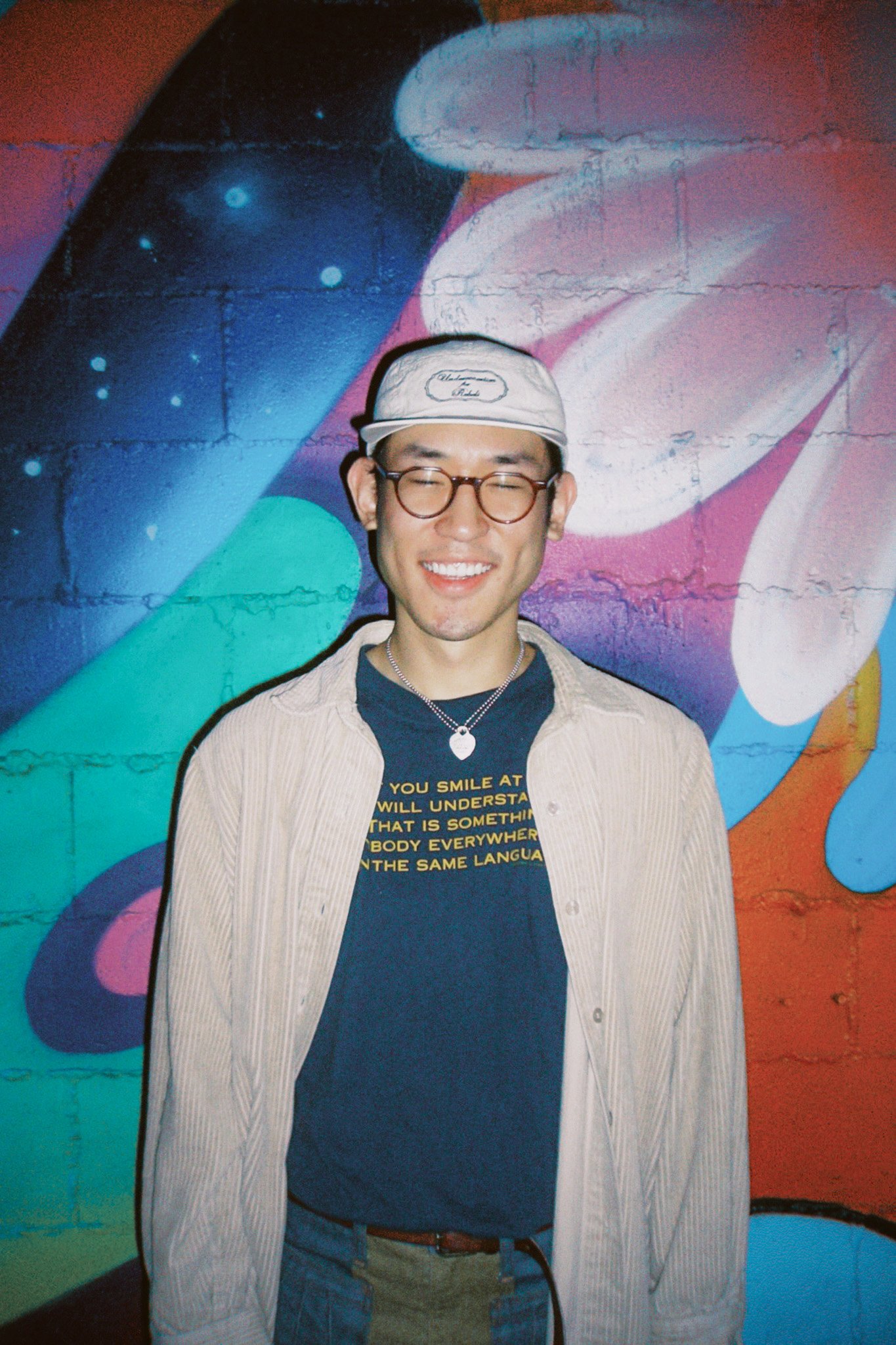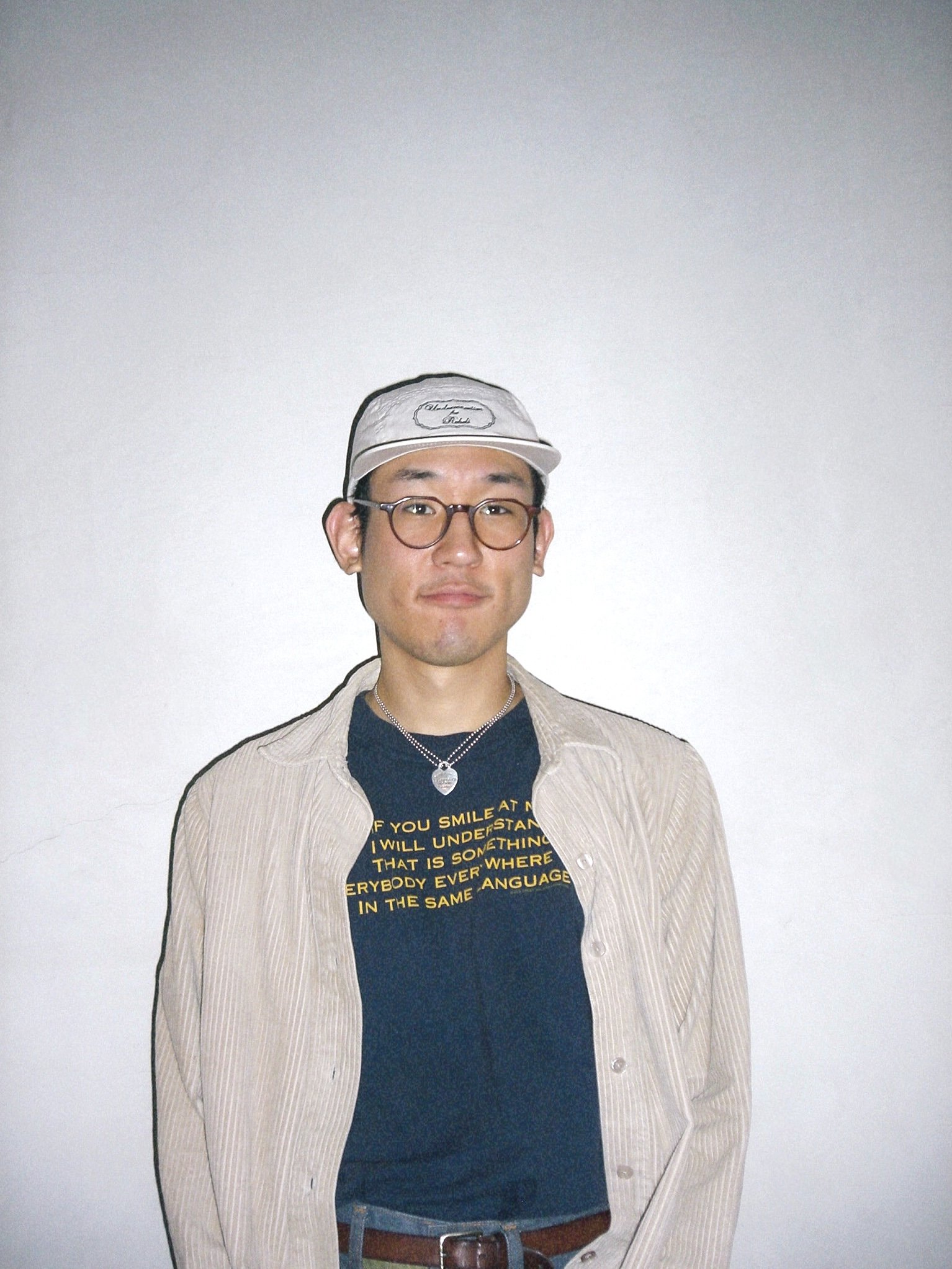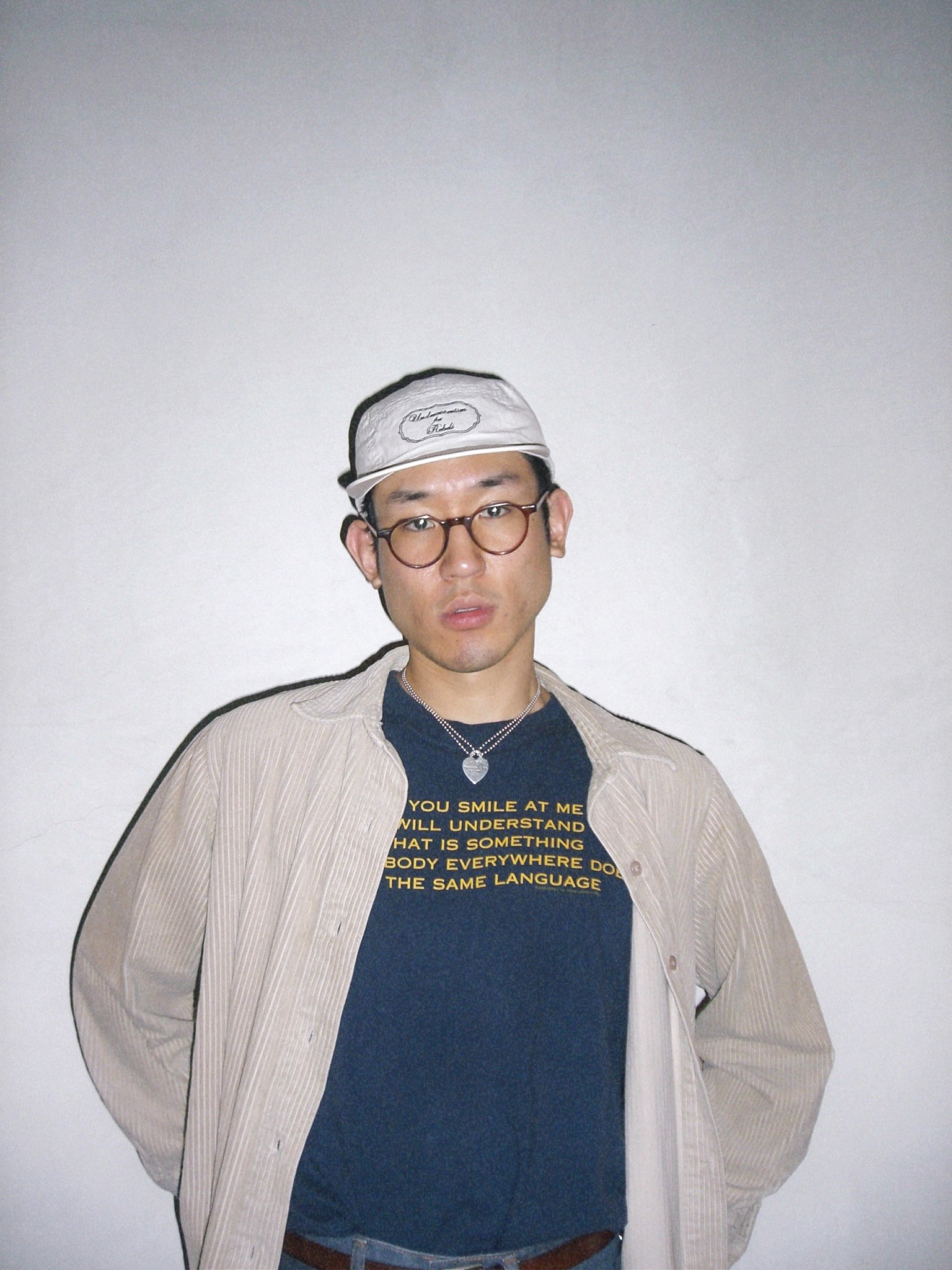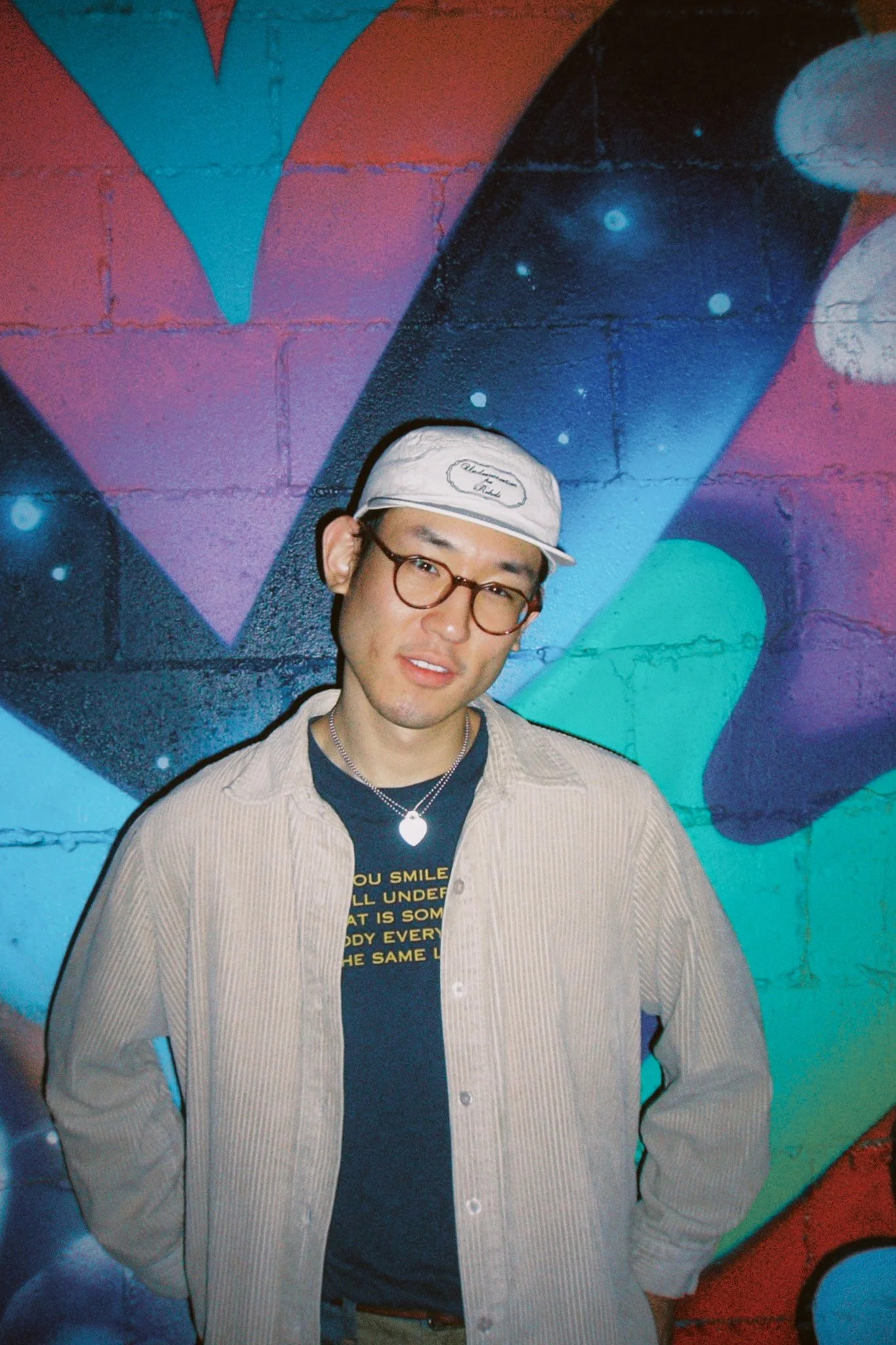Juju B. Goode Wants to Introduce You to Mr. Lee
Korean singer-songwriter Juju B. Goode dug deep into the sounds of K-Pop’s past and his own history to create a new persona: Mr. Lee
“The character of Mr. Lee that I drew was a salesman living in the city pulling an all-nighter working but he dreamed of being a star,” Juju B. Goode describes in this interview.
Long before he first wrote “Mr. Lee”, singer-songwriter Juju B. Goode imagined creating a character lost in a quarter-life crisis.
The song, which was released to streaming services this week, began to come together during Covid. “I wanted to write about an ordinary person living in a big city, in their twenties, going through their mid-twenties crisis,” Juju told me in early August while he was staying in California. The song’s name, he explained, is a homophone. “When you hear the name ‘Mr. Lee’, it kinda sounds like “mystery” and you don’t really know what that means. I love doing that kind of pun stuff in my titles, and talking about this imaginary character.”
When we met, Juju was busy putting the finishing touches on his debut album “Smile! You’re On Camera”. For the past few weeks Juju has been here in California working inside a garage that his friend and producer Pablo Garcia-Quesada converted into a music studio. The pair have been busy, adding drums and bass to the album’s songs, freshening them up in an effort “to take the music to the next level”. These songs, like “Mr. Lee”, have a retro disco feel to them, and are reminiscent of the pop music Juju grew up listening to in Korea.
“Mr. Lee” is the lead single for “Smile” and it signifies a shift in Juju’s musical output. Fans of Juju might know him for his music that nestles nicely into Spotify K-R&B playlists, but Juju has used “Smile” as a tool to expand his oeuvre. “A lot of my songs from my recent EPs are love songs,” he said, “and I wanted to get away from that to tell stories about all sorts of things.”
“I started working on this album a year and a half ago,” he explained. “I wanted to do something that I haven’t done before. I wanted to capture all of the music I grew up listening to, and engage that in my musical creation.” He pulled from diverse sources, too, “like living in New York City” and all of the “crazy energy” that comes from being in an environment where you’re surrounded by artists.
On “Smile”, Juju imagines an album that listeners can listen to while shopping at their favorite store or as they go on late night drives with friends. “Smile” is an album that you can carry with you. A piece of music that can highlight and soundtrack your life. “This album is my own take on K-Pop because to me, K-Pop has always been a salad bowl of all this different type of music,” he told me thoughtfully. Juju grew up listening to groups like BigBang, whose music redefined how boundary-pushing K-Pop can be, but recently he’s seen groups like NewJeans meld a number of new influences into the genre, too.
“I wanted to channel that,” he said, “and do my own take of it in a rough DIY way.” By the time they recorded “Mr. Lee”, with its bright burst of disco, Juju could see where things were headed.
The story behind “Mr. Lee” actually began when Juju decided to move to New York.
“The character of Mr. Lee that I drew was a salesman living in the city pulling an all-nighter working but he dreamed of being a star,” he told me. “That’s the picture I had in my mind because of my work.”
Before he transitioned into being a working musician, Juju worked at a marketing company in Korea. The job was stable, good work, something that Juju looks back on now and doesn’t take for granted. But the constant friction between the demands of a 9-5 job and a creative life began to wear on him. “The workload made it impossible to do your own thing,” he explained. Juju found himself having to choose between spending time with friends or making music, which wasn’t an easy choice. “Music has been like a best buddy to me for a long time,” he told me with a smile. So he chose to follow that intuition and move.
“I quit my job in September,” he remembered, “and I was in New York by November.”
When he arrived, Juju did what thousands of struggling artists do to get by: He took a job as a barista at a coffee shop. “I think being a barista and broke artist in New York, it really makes you see New York in a really different angle because everyone you work with are actors, writers, artists and comedians,” he said. “Getting around that energy was so inspiring.”
The pandemic hit a few months after Juju arrived, but the singer chose to take the world shutting down, like many artists did, as a time to focus on his work. He was in a city surrounded by some of the best art and artists in the world, and he was eager to begin working. “There were so many tragic things that happened during that time, but being in my house by myself, I was lucky enough to be in a place where I could totally focus on my work,” he reflected. “Juju B. Goode really came from that.”
Juju took the time to reflect on himself and what he wanted from his music. He also continued to work as a barista. “People would come in and they would act so obnoxious. They would talk to me in such an aggressive way,” he said, “Overtime, I understood that they don’t mean anything to me. The first few lines of the song, I was thinking of those customers, wondering why they are in such a hurry all the time?”
Couldn’t you slow down a little bit? The line came to him, and Juju followed it again, just like his instincts to move to a new city. He wanted to see how the song could unravel and grow with him.
“I wanted to do something that I haven’t done before. I wanted to capture all of the music I grew up listening to, and engage that in my musical creation,” Juju says.
“Mr. Lee” and the music of “Smile” are all oriented towards a history of Korean pop music, the kind that Juju grew up listening to.“‘Mr. Lee’ has that bit of corniness that is like my guilty pleasure,” he said. “A lot of this album is inspired by 90s Korean music and early K-Pop.” The sound of early K-Pop might not be immediately appreciated by Westerners, but it is steeped in what the genre would become: a microcosm of diverse genres and textures. It’s reminiscent of Deux, Shinwha or Roo’ra with its retro beat and Juju’s highly expressive singing.
Juju knows that at 28-years-old, he’s a late bloomer in music. After all, 15-year-olds are debuting in K-Pop monthly. But his experience – and his intelligence – gives him something that teenagers don’t have: Perspective. “Maybe I’m older in terms of debuting and starting my music career but I got to experience so much in life,” he told me near the end of our conversation. “I understand the value of being able to pursue what I love and to talk about that and capture that energy in my music.”
Juju wouldn’t be able to tell the stories he’s writing now if he hadn’t worked at a company or followed his wildest dreams to move to New York. He definitely would not have a brilliant, encyclopedic knowledge of music if he hadn’t gone to college or decided to explore new genres. “I had the luxury of learning about different music and instruments. I might be a little late to the production game,” he explained, “but how can I use that skill and use my diverse knowledge to merge that together?”
“Smile” will be a chance for Juju to declare what kind of artist he is, and to show everything he’s learned up to this point. “Now I’m trying to think less of Spotify streams and more about what I can be as an artist,” he added.”I hope that this is something that people can listen to and think, “Oh this is what Juju B Goode is good at.”
Stream “Mr. Lee” here. You can pre-order Smile! You’re On Camera soon!
Follow Juju B. Goode on Instagram.





